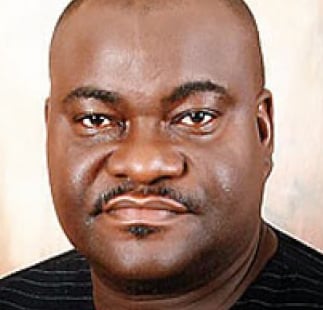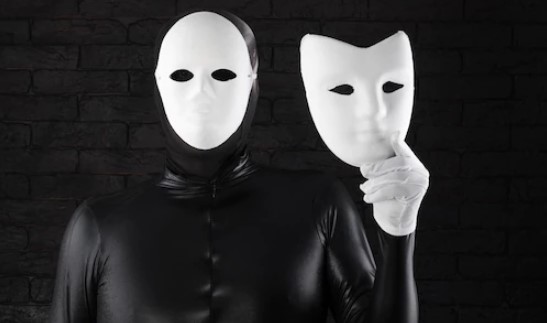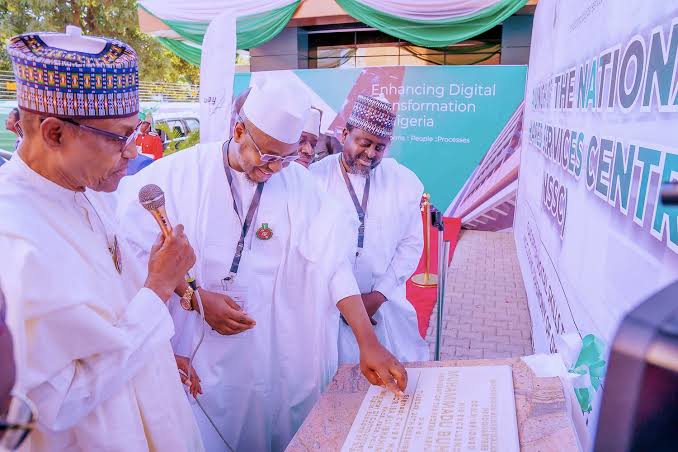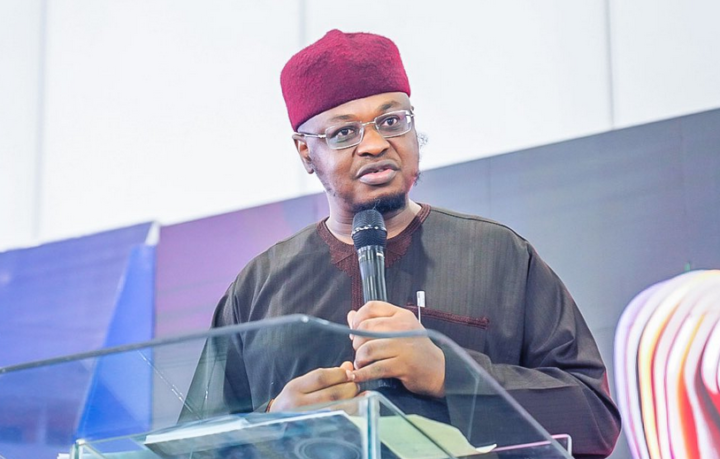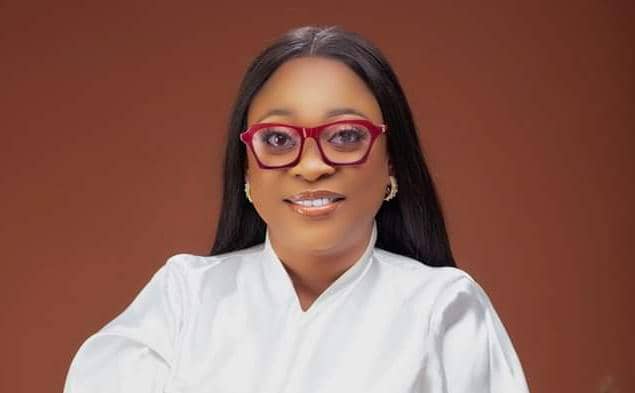He burst onto Nigeria’s entertainment scene three decades ago as some kind of mystery man. Yes, his music was and remains arresting, captivating and peculiar. He is a versatile artiste who is at once a composer, singer and instrumentalist. He is dexterous with the saxophone, the flute and percussion. He sings afrobeat basically, a musical genre popularised by the legendary Fela Anikulapo-Kuti. But he introduced the gangan, bata and omele, among other instruments, whose genealogy is rooted in Yoruba culture, into his brand of afrobeat. This is a deliberate Africanisation of his creative aesthetics, in a milieu where some upcoming artists, xeroxed the forms and makeups of Western music, desiring authentication by alien standards. His lyrics emblematise sociopolitical commitment, the type popularised by Fela, who spoke truth to power in its rawness and bluntness, without affectation and cosmetics.
He addresses commonplace, day-to-day human experiences and aspects of our global culture, preferring English as the dominant mode of communication. There are regular switches to pidgin English and Yoruba, and where necessary, native speakers of other languages are engaged to achieve essential diversity and indigenous embellishment. Ali Baba, the famous stand-up comedian, for instance, features in one of his songs titled ‘Gengen’ (rumours), with an interlude in Urhobo. His former backup vocalist, Ego Iheanacho, (now Mrs Ogbaro), equally interjected in Urhobo in the danceable successful ‘Gra Gra’ music track from one of his earlier works. ‘Konko Below’ was a dancefloor mover in its time, the way Burna Boy’s ‘Killin’ Dem’, Kizz Daniel’s ‘Buga’ and Davido’s ‘Fall’ have variously been hits.
Despite all of these, however, he has sustained the anonymity of the man behind the mask. The masked artist we see on television or whose performance we’ve watched in Motherlan’, his outdoor hangout in Ikeja, Lagos, goes by the name Lagbaja. In Yoruba, this name lends itself to a multiplicity of spontaneous translations. Lagbaja could be “somebody,” “nobody,” “anybody” and “everybody”. Reminds you somewhat of Muhammadu Buhari’s inaugural speech as president in 2015, when he declared: “I belong to everyone, I belong to no one!” Lagbaja has sustained this mystique for three decades and counting, even though people believe the person behind the mask is Bisade Ologunde, a graduate of the Obafemi Awolowo University, (OAU), Ile-Ife. Lagbaja is quick to tell you though, that “Bisade Ologunde is Lagbaja’s manager!” So the longing for the unravelling of the masked one continues.
This prefatory exegesis leads on to the lingering quasi-amorphousness of one of the frontline contenders for the nation’s presidency, Bola Ahmed Adekunle Tinubu. He is known by several revered titles and aliases, notably: Asiwaju, (the leader and forerunner in Yoruba language), and Jagaban (leader of warriors in Baruba, the language spoken in Borgu, Niger state, where he was vested with the title). He also adopted the title of “national leader” of the All Progressives Congress, (APC), for his role in facilitating the multiparty coalition which crystallised into the entity as it stands today. I understand the title is not referenced in the constitution of APC though. I’ve also heard him serenaded with the grand nomenclature of Olowo Eko, (the money man of Lagos), among others.
Advertisement
Let me make the point here that I’ve been a diligent follower of the Tinubu political trajectory, especially in the last 25 years. He engaged my very good friend, colleague and brother, Segun Ayobolu, as his chief press secretary upon assumption of office in 1999, strictly on merit and competence. Yet, Ayobolu featured more prominently in the directorate of publicity of the Obasanjo Presidential Campaign Organisation between 1998 and 1999. The team, very ably led by the revered Onyema Ugochukwu, operated from Oluwalogbon Motors, Ikeja, Lagos, a few hundreds of metres from the Governor’s Office, Alausa.
Ayobolu is ordinarily from the Okun country in Kogi state. Presently on the editorial board of The Nation newspapers, he remains one of Nigeria’s most brilliant, rigorous, articulate, profound and versatile political reporters, analysts and editors. He brought scholarship into political journalism and held himself very professionally during the days of the various political experimentations of the Ibrahim Babangida and Sani Abacha governments. From his desk as political editor of the Daily Times, he engaged with political figures of all hues, even as they also courted his friendship. I admire Tinubu’s pan-Yoruba nationalism which has featured prominently in his vocation as a veritable discoverer and developer of men.
Unfortunately, there are too many controversies, discrepancies, question marks and sticky points surrounding Tinubu’s global constitution, bothering integrity and credibility. As a pan-Nigerian myself, I have no issues with people’s birthplaces or origins. We should all be proud of our roots, no matter how rustic and rural. Enoch Adejare Adeboye, head of the Redeemed Christian Church of God (RCCG), celebrates Ifewara, Osun state, where he hails from, at every opportunity. In the case of Tinubu. the authenticity and veracity of his date and place of birth, even his original name, have been recurring issues of public contestation. Is he truly older than age 70 which is his most recent entry? Was he born in Iragbiji, Osun state, where he was reportedly christened “Amoda Ogunlere?” At what intersection did he transmogrify into becoming a member of the predominantly Lagos-based Tinubu family? Questions and more questions.
Advertisement
There are serious doubts and disparities about his education as well. Between Lagos and Ibadan where he supposedly had his foundational education, there are conflicts about the names of the institutions and the years Tinubu was on enrolment. Worse still is the fact that the man in the eye of the storm has not been able as yet to name or identify schoolmates and classmates who grew up with him. Except of course if he was groomed all the way, in an exclusive royal creche. For the age he claims, it is unlikely that his contemporaries have all exited this side of creation. If he truly graduated from Chicago State University in 1979, he should have been 29 years old at the time and eligible for participation in the mandatory National Youth Service Corps, (NYSC). The scheme was established in 1973 by the military regime of Yakubu Gowon as one of the post-Nigerian civil war national reintegration programmes, to help heal a heavily fractious polity. Can Nigerians please sight his NYSC discharge certificate? Was he granted an exemption? Even then, he would have been issued a certificate to that effect. Lest we forget, in 2015, we voted in a president who couldn’t produce the most basic of qualifications, the West African School Certificate, (WASCE), an ordinary-level certificate. Yet he promised to take Nigeria from top to bottom and truly did.
Tinubu is fabulously affluent. This image was bolstered in 2019 when he procured bullion vans to deliver tonnes and tonnes of cash to his palatial Lagos residence for the prosecution of the general elections. It has been alleged that all the aspirants who stepped down from contesting with him at the APC presidential primary, were refunded their “investment” in the purchase of the nomination forms, at a staggering premium in seven-figure foreign currencies. What are the sources of these stupendous resources? What are his business addresses? Moshood Kashimawo Olawale Abiola, (popularly known by the abbreviation MKO Abiola), who contested the 1993 presidential election annulled by Babangida’s government, had several known and thriving ventures and enterprises to his name. Telecommunications, aviation, maritime services, oil and gas, banking, agriculture, and publishing, were some of his notable businesses. There is too much opacity around and about Tinubu.
Atiku Abubakar, Tinubu’s foremost challenger in the forthcoming election, is running on the platform of the Peoples’ Democratic Party, (PDP). Like Abiola, he is a serial entrepreneur with interests in maritime logistics, agriculture; (crop and husbandry); water and beverage production; real estate; educational institutions; broadcasting; microfinance banking; packaging; hospitality and fast foods among others. He owns the American University of Nigeria (AUN), an international brand which is redefining education in the Sahel Savannah. He has continued to provide livelihoods for thousands of Nigerians engaged in his various investments. What exactly is the unceasing fountain of Tinubu’s mega-wealth?
The drug controversy about Tinubu just wouldn’t go away. He was allegedly noted for living a grand life by authorities of the United States, who investigated him and froze his assets in 1993. Proceedings in a court case asserted that the US government had “probable cause” to believe that Tinubu’s multiple accounts, held the proceeds of heroin dealings. He entered a plea bargain, which in legal terms is unequivocal admission of guilt and a solicitation for a soft landing. He reportedly forfeited $460,000, even as court documents suggested he was a conduit for two Chicago heroin merchants in the early 1990s. That, supposedly, is the man who wants to be Nigeria’s president.
Advertisement
It has often been said that one way to lose your cherished privacy, particularly in a country like Nigeria, is to aspire for public office. Was it not proferred once upon a time that Atiku was a “Camerounian” who was therefore unqualified to contest an election in Nigeria? The matter was heard and duly thrown into the garbage bin by the federal high court. Beyond the papering over and makeovers Tinubu managers are presently doing, there is deeper grit, grease, and grime around their candidate, more than sufficient to impair his present bid. We mustn’t set the wrong precedence by sustaining a culture of electing leaders with questionable profiles and credentials. We got it wrong, totally off the mark in the Buhari instance, when we enthroned a religious bigot and ethnic chauvinist. Thunder must not strike a second time as the Yoruba adage says.
Nigeria is too important in the global community to be sneered at, as a nation of all sorts. Our global rating has been on a southward descent, post-Olusegun Obasanjo. Nigeria’s image was indeed on the ascendancy in world affairs, in the last decade of military rulership. Ibrahim Babangida, succeeded by Sani Abacha enthroned Nigeria as the undisputed leader in West Africa, and one of a tripod of development drivers in the continent, alongside South Africa and Egypt. Obasanjo took it notches higher, compelling the world to discuss Africa by speaking with Nigeria. We’ve recoiled into pitiful anonymity, especially in the past eight years. We cannot, therefore, elect a very obvious Lagbaja or Lakasegbe, Tamedun or Lamorin, (all Yoruba references for faceless anonymity). Such a character’s real face and looks are glaringly shielded from us all, hidden away behind an obvious facade, an opaque mask as it were. We need a transparent, accessible, open, and visible, president. Nigeria doesn’t deserve a “President Somebody, Nobody, Anybody, Everybody”.
Olusunle (PhD) is special adviser on media and publicity to Atiku Abubakar (GCON)
Advertisement
Views expressed by contributors are strictly personal and not of TheCable.
Add a comment
